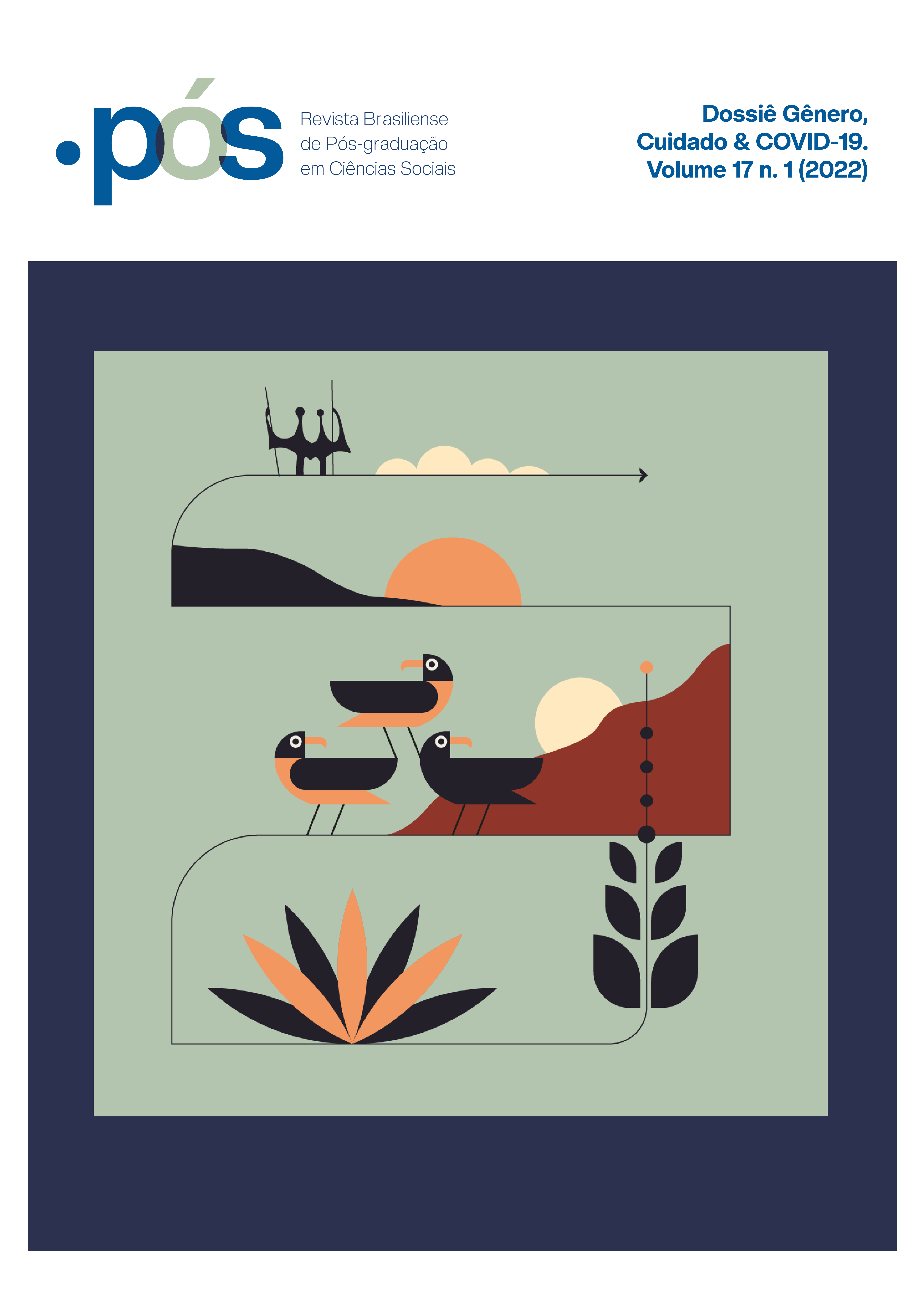Risky pregnancies and puerperiums: official narratives from the Brazilian government about maternity hospitals considered undesirable in light of the health emergencies of Zika and Covid-19
Keywords:
Sexual and reproductive rights, Epidemics, Ministry of HealthAbstract
In 2015 and 2016, Brazil experienced a spike in notifications of babies born with the Congenital Zika Virus Syndrome (SCZV). The “global threat” was not the Zika disease itself, but being pregnant (or the possibility of becoming pregnant) (Fleischer; Carneiro, 2017; Diniz, 2016). Marcelo Castro, Minister of Health at the time, made a series of unhappy public statements suggesting that women of childbearing age should delay pregnancy. Five years later, Brazil became the country with the highest maternal mortality rate from Covid-19 (Pereira et al., 2020). Such a Dantean scenario disproportionately affects the black population, since in Brazil, the mortality of pregnant women from Covid-19 is almost twice as high among black women as among white women (Santos et al., 2020). It was in this context that the current Secretary of Health, Raphael Parente, suggested: “Delay pregnancy a little”. For the second time, in the five years since the Zika
and Covid-19 epidemics, health authorities admit that being pregnant in Brazil is a risk. The objective of this work is to discuss, based on ethnographic research, the strategies to remove the responsibility of the State in guaranteeing the sexual and reproductive rights of Brazilian women of reproductive age in these two health crises, comparing the guidelines of the Ministry of Health and its performance. The argument is that the failure to act in the face of these two epidemic contexts produced official discourses that support control and surveillance of female bodies, so that motherhood, would be associated to risk.
Downloads
References
BRASIL. Secretaria de Vigilância em Saúde. Ministério da Saúde. Monitoramento integrado de alterações no crescimento e desenvolvimento relacionadas à infecção pelo vírus Zika e outras etiologias infecciosas. Boletim epidemiológico, v.49, n. 59 2017.
CARNEIRO, Rosamaria e FLEISCHER, Soraya. Em Brasília, mas em Recife: atravessamentos tecno-metodológicos em saúde, gênero e maternidades numa pesquisa sobre as repercussões da epidemia do vírus Zika. ISSN: 19840470, 625. 2020.
DINIZ, Débora. Zika: do Sertão nordestino à ameaça global. Rio de Janeiro: Civilização Brasileira, 2016.
FEDERICI, Silvia. O Ponto Zero da Revolução: trabalho doméstico, reprodução e luta feminista. São Paulo: Elefante, 2018. 388 p.
LIRA, Lays Venâncio. Dar um bale: Ativismo materno na busca por serviços a bebês com Síndrome Congênita do Vírus Zika no Recife. Textos Graduados, 5(1), pp. 17-30. 2019.
MELLO, Anahí Guedes de. Gênero, deficiência, cuidado e capacitismo: uma análise antropológica de experiências, narrativas e observações sobre violências contra mulheres com deciência. Dissertação (mestrado) - Universidade Federal de Santa Catarina, Centro de Filosofia e Ciências Humanas, Programa de Pós-Graduação em Antropologia Social, Florianópolis, 2014.
NAKAMURA-PEREIRA M, Amorim MM, Pacagnella RC, Takemoto ML, Penso FC, Rezende-Filho J, et al. COVID-19 e morte materna no Brasil: uma tragédia invisível. Femina. 2020;48(8):496-8.
PORTO, Rozeli e COSTA, Patrícia. Zika Vírus e Síndromes Neurológicas Congênitas: Contribuições do/para o Campo de Estudos de Gênero. Cadernos De Gênero E Diversidade, 3(2), 2017.
SANTOS, Márcia Pereira, et al. População negra e Covid-19: reflexões sobre racismo e saúde. Revista Estudos Avançados, 34 (99), 2020.
WERNECK, Jurema. A epidemia de Zika e as Mulheres Negras. Boletim de Organizações de Mulheres Negras Brasileiras. 2016.
Downloads
Published
How to Cite
Issue
Section
License
Copyright (c) 2022 Pós - Revista Brasiliense de Pós-Graduação em Ciências Sociais

This work is licensed under a Creative Commons Attribution-NonCommercial-NoDerivatives 4.0 International License.













